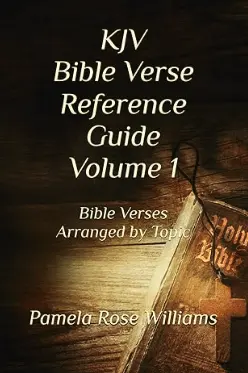Can logic be found in the Bible?
Many times, when having discussions with non-Christians, they will make a comment about the Bible being a book of fairy tales and made-up stories. However, if we are blessed enough to share verses from the Bible that speak to common issues in life, sometimes it makes them take pause, wondering what else it might say. This often opens the door to conversations about practical applications of Scripture to life and the logic involved. So, if we think about it, can logic be found in the Bible?
What is logic?
According to Websters 1828 Dictionary, logic is defined as follows (1):
LOG’IC, noun [Latin id; Gr. from reason, to speak.]
The art of thinking and reasoning justly.
Logic is the art of using reason well in our inquiries after truth, and the communication of it to others.
Logic may be defined, the science or history of the human mind, as it traces the progress of our knowledge from our first conceptions through their different combinations, and the numerous deductions that result from comparing them with one another.
Correct reasoning implies correct thinking and legitimate inferences from premises, which are principles assumed or admitted to be just. logic then includes the art of thinking, as well as the art of reasoning.
The purpose of logic is to direct the intellectual powers in the investigation of truth, and in the communication of it to others.
We can see here that logic is a Latin originated word that refers to the art of thinking justly using correct reasoning and legitimate references. What many people do not realize is that saying something is logical involves intellectually based techniques and principles to independently investigate and prove the legitimate truth.
What is the foundation of logic?
As we saw in the definition of logic, it is “The art of thinking and reasoning justly.” This means the thinking and reasoning must also be based on justice. In other words, what is legally right or good. We see an example of this when Jesus was confronted and accused by the Pharisees of casting out devils by Beelzebub, the prince of the devils. He rebuked them and told them how they would be condemned for their blasphemy and lying about Him saying He was casting out demons using demonism:
Matthew 12:32-37. “…whosoever speaketh a word against the Son of man, it shall be forgiven him: but whosoever speaketh against the Holy Ghost, it shall not be forgiven him, neither in this world, neither in the world to come. 33 Either make the tree good, and his fruit good; or else make the tree corrupt, and his fruit corrupt: for the tree is known by his fruit. 34 O generation of vipers, how can ye, being evil, speak good things? for out of the abundance of the heart the mouth speaketh. 35 A good man out of the good treasure of the heart bringeth forth good things: and an evil man out of the evil treasure bringeth forth evil things. 36 But I say unto you, That every idle word that men shall speak, they shall give account thereof in the day of judgment. 37 For by thy words thou shalt be justified, and by thy words thou shalt be condemned.
We see here that Jesus was saying that good words are just, but bad words are not and will result in condemnation. Simply said, words that are true are just and words that are a lie are unjust. We see this mentioned later and how it results in peace:
Philippians 4:8-9. “Finally, brethren, whatsoever things are true, whatsoever things are honest, whatsoever things are just, whatsoever things are pure, whatsoever things are lovely, whatsoever things are of good report; if there be any virtue, and if there be any praise, think on these things. 9 Those things, which ye have both learned, and received, and heard, and seen in me, do: and the God of peace shall be with you.“
We also see a connection between God’s justice and truth in songs of Moses that will be sung in future end times similar to one sung in the past by Moses and the Israelites:
Revelation 15:3-4. “And they sing the song of Moses the servant of God, and the song of the Lamb, saying, Great and marvellous are thy works, Lord God Almighty; just and true are thy ways, thou King of saints. 4 Who shall not fear thee, O Lord, and glorify thy name? for thou only art holy: for all nations shall come and worship before thee; for thy judgments are made manifest.”
Deuteronomy 31:30 – 32:4. 30 And Moses spake in the ears of all the congregation of Israel the words of this song, until they were ended. 32:1 Give ear, O ye heavens, and I will speak; and hear, O earth, the words of my mouth. 2 My doctrine shall drop as the rain, my speech shall distil as the dew, as the small rain upon the tender herb, and as the showers upon the grass: 3 Because I will publish the name of the LORD: ascribe ye greatness unto our God. 4 He is the Rock, his work is perfect: for all his ways are judgment: a God of truth and without iniquity, just and right is he.
What this tells us is that the foundation of logic is the truth of God’s Words on which justice is founded. This means, we must base truth and justice on God’s Word, the Bible, as follows:
John 1:1, 14. ”In the beginning was the Word, and the Word was with God, and the Word was God.” 14 “And the Word was made flesh, and dwelt among us, (and we beheld his glory, the glory as of the only begotten of the Father,) full of grace and truth.”
2 Timothy 2:14-15. “Of these things put them in remembrance, charging them before the Lord that they strive not about words to no profit, but to the subverting of the hearers. 15 Study to shew thyself approved unto God, a workman that needeth not to be ashamed, rightly dividing the word of truth.”
John 17:17. “Sanctify them through thy truth: thy word is truth.”
There are many more verses that say God’s Words are truth. This then tells us that when it comes to logic, we must start with the established truth of God’s Word. Finally, if we look up “Word” in the Bible using a Strongs concordance, the Greek word for the English term “word” is logos (2):
Greek Word: λόγος
Transliteration: logos
Phonetic Pronunciation: log’-os
Root: from <G3004>
Cross Reference: TDNT – 4:69,505
Part of Speech: n m
Vine’s Words: Account, Cause, Communicate, Communication, Intent, Matter, Matters, Question, Questioning, Reason, Report, Saying, Show (Noun), Speech, Talk, Things, Treatise, Utterance, WordUsage Notes:
English Words used in KJV:
word 218
Logos, is the Greek word for “Word”, referring to the Word of God, or the Bible. It has the same root (LOG) as the Latin Word Logic. So, this confirms to us when we read, “Sanctify them through thy truth: thy word (logos) is truth” in John 17:17, that it is telling us, Sanctify them through thy truth: thy LOGIC is truth!
We also see this same “log” root when referring to a journal or “log” someone writes “words” in to document an event, like a captain’s log on a ship. So, when comparing logic and logs, they both involve words of truth and reason. Therefore, when we use logic, it involves the Words of the Truth, justice, and reasoning of God’s Word.
How do we prove something is logical?
Now, to determine if something is true or logical, it must be in agreement with God’s Word. As we saw in John 17:17, “Sanctify them through thy truth: thy word is truth.” This means we must first establish the foundation of truth by comparing it to what Scripture teaches us.
Proving something true by using logic
Once we know the truth, to logically prove anything is true, we can use a principle called circular reasoning. Circular reasoning can be described as follows in a simple mathematical principle known as the transitive property (of equality). An example of this transitive property would be: if A = B, and B = C, then A = C and C = A. This is because if A and B are equal or the same, and B is also the same a C, then C is the same as A, because B was the same as A.
If we take this a step further in defining logical truth, we could use the same principle of reasoning in the following example:
A = Taking innocent life is murder (Biblical Truth – Exodus 20:13. “Thou shalt not kill.”)
B = Murder is a capital crime (Biblical Truth – Exodus 21:12. “He that smiteth a man, so that he die, shall be surely put to death.”)
C = The penalty for a capital crime is the death penalty (Biblical Truth – Numbers 35:30. “Whoso killeth any person, the murderer shall be put to death by the mouth of witnesses: but one witness shall not testify against any person to cause him to die.”)
Then – The penalty for taking innocent life (A) is the death penalty (C)
A logical conclusion example
A practical application of this would be if someone did not stop at a red light and they hit a car being driven by a pregnant woman, which resulted in the death (murder) of the woman and her baby (A).
The person that ran the red light is charged and prosecuted for two counts of the crime of vehicular homicide: one for the woman, and one for the baby (B).
The person that ran the red light and killed the woman and her baby is found guilty of their murder so they a penalized according to the law because taking innocent life is homicide (C).
This is an example of the logic of circular reasoning: A = B = C = A.
How do we prove something is not logical?
On the other hand, what if the woman driving was on her way to a clinic to terminate her pregnancy? At the clinic her pregnancy was terminated. The baby’s life was ended. Should the mother get charged? Furthermore, should the man that ran the red light only get charged for the mother’s death since she decided to end the baby’s life and was on her way to do it?
This is an example of illogical circular reasoning. Illogical means it is a sick logic, or a logic that does not meet the rules of logic to reach the same logical outcome, or truth, in ALL cases. Therefore, we can see a problem now, because the logic does not work, making it illogical. When this happens and no one is charged and prosecuted for homicide, then they are violating the truth and justice of God’s Word proving it is illogical.
How do we know circular reasoning provides justice?
Despite these examples, many critics will say circular reasoning is a fallacy because just because you say it applies in one situation, applying it in another situation does not make it true. However, what they fail to realize is that if the comparison is to something known is Biblically true and is connected to something else that we know is not Biblically true, then it results in injustice because the truth is contradicted in a circumstance.
In the case of the baby dying, those saying the man responsible for the death of the baby is guilty of a crime, but the woman responsible for the death of the baby is not guilty? This is not an equal application of the law and justice of God’s Word. Using that logic, one could say that if a father beats his child and the child dies, he is not guilty, but if a mother beats the child and the child dies, she is guilty is unjust and illogical. This is because nobody has the right to beat and kill their child, nor anyone else’s child for that matter.
Final Thoughts
We can look at many other examples, but the important thing is that we can apply the same Biblical truths in the Word of God to innumerable situations and the logical outcomes should be the same. This is because the Word of God is the basis for logical truth. So then, if anyone asks, “Is there anything logical about the Bible?” or doubts it, we can apply circular reasoning using real life situation to prove it is true and provides justice for all. If they don’t agree, then they have a problem with God’s Word.
The amazing thing is that as we study and memorize our Bibles more and more, the Holy Spirit will bring Bible verses to mind that apply to these situations, without us even having to look it up. Then we can readily show how God’s Word is a reliable source of logic. Thanks be to God for His unspeakable gift (2 Corinthians 9:15).
Another consideration about the word of God and its Greek link to the word logos is that it is also where we get the term “logo”. Read more about it at:
If God had a logo, what would it look like?
References
(1) https://webstersdictionary1828.com/Dictionary/logic
(2) James Strong, “Λόγος,” in Strong’s Talking Greek and Hebrew Dictionary (WORDsearch, 2020).

Dr. Michael L. Williams, Head of Ministry Operations and Technology at Christianity Every Day, is a Christ-centered Author, Educator, Biblical Counselor and Advisor. He is ordained in Pastoral Ministry and formerly the founding Pastor of Selah Mountain Ministries, a church started along with his wife, Pamela Rose, after several years of pastoral experience and training in Biblical Counseling. Selah Mountain provided Biblical counseling and education to the public on how to overcome life issues Biblically on topics such as anger management, marriage, addictions, and other subjects – often referred to as mental illnesses. To learn more about Dr. Mike visit the About page.
















